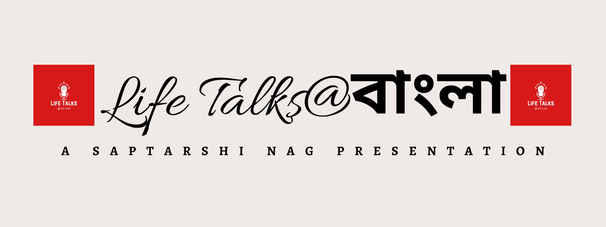
“Whatever is begun in anger ends in shame.” – Benjamin Franklin
This is a chapter on which eminent psychologists have written volumes after volumes. In fact, this is the aspect of your personality which comes to your rescue when everything else fails. We are not going to dig deep into the research aspects of this trait. What we are concerned about is how this is going to induce positive impacts on your ambition.
In the simplest manner, the definition of E.I or Emotional Intelligence is knowing one’s own emotions and the ability to control his emotions and in the process changing the behavioral patterns of the others. This is one of the most important traits, the interviewers are on the lookout for. Your Interviewer is searching for a leader in you. The leader, who can motivate others, keeps his co-workers in the right spirit and does not crumble even when the chips are down. The leader who is not only successful in accomplishing goals but also happy and content with himself. And to do so you must possess a very high quantum of emotional intelligence.
A person with high E.I always strikes the right balance between emotion and rationality. He is neither swept away by emotions nor chained by rationality. Rationality without emotion reduces one into a machine, a complete mismatch in the society. Again emotion without rationality makes one an emotional fool who is worthless and liability to others.
Let’s set an example in this context. Just the night before the interview someone very close to you falls sick and is hospitalized. Now, what should you do? Rush to the hospital because that is you, a very soft-hearted person who can sacrifice even his dreams and aspirations for the person you love? Or else, switch off the mobile phone, shut the door and concentrate in the preparation for the interview because that is your only priority and let the whole world go to hell? Now here you need to ask yourself a few questions.
What is your priority right at the moment? Preparation for the interview is very vital as you have crossed all the hurdles and this is the final and the most crucial one you need to cross. Once you successfully cross it, your life is changed altogether and forever! But again, you cannot turn a deaf ear to a person’s desperate cry for help and that too a very near and dear one. Now it is only a matter of one night. You can request someone to take the charge on your behalf and do everything necessary for the medical urgency for the time and once the interview is over, you are all free to make yourself completely available. On the other hand, if you do not have any such way out and only you have to shoulder the entire responsibility, you must go to the hospital, communicate your problems to the doctor and within minimum time frame try to manage the situation. Then come back and concentrate on your preparations. If you are disturbed mentally which you will naturally be, try to convince yourself that it is the doctor who is needed the most there. Rationally you have done whatever you could have done and now you should focus only on the target as once it’s missed it’s gone. So what are the traits of a person with high E.I?
- Sensitive but not sentimental
- Analytical but not judgmental
- Responsive but not reactive
- Rational but not mechanical
- Thinks before acting and not acts before thinking
- Thinks before speaking and not the opposite
- Empathetic but not apathetic
- Calm and composed
- Never loses controls on emotions
- Accepts and never expects
A person with high E.I is the master of himself and not a slave of the circumstances. He knows how to act and what to say in any situation. He is never a prey to temptation. If he succeeds, he accepts elegantly and if he fails he embraces his defeat graciously. But the show goes on for him.
Emotional Intelligence is correlated with the following human traits
Self-awareness- Unless you know yourself, how can you control your emotions? For practicing this in a better way, you need to understand your strengths and weaknesses.
Self-regulation- Unless you control your emotions, how can you change others? You need to think before you act or speak.
Motivation- Unless you are motivated, how can you direct your attitude for the better results?
Empathy- Unless you place yourself in other’s shoes, how can you feel for them? Empathetic people are always excellent at managing relations and situations.
Social skills- A leader always possesses social skills. He is an expert in verbal and non-verbal communications.
Now the question comes how to improve your E.I?
- Be a good listener. Only after a patient hearing, you get to know what the other person expects from you. Do not jump into the conclusion in the middle of a conversation.
- Do periodic self-evaluation. It is always better to practice your SWOT analysis. Once you identify your strengths, weaknesses, opportunities, and threats, you can manage your persona on how to react to a particular situation.
- Think before you react. The standard operative procedure of converting high emotional intelligence into acts of glory consists of three steps Feel- Think- Act. Unless you feel what it is the interviewer wants in you, you cannot think over your answers properly. And only when you have thought over your answers, you are in a position to answer properly.
- Examine how you react to a stressful situation. If you feel nervous when the proceedings shift the course or when the things do not go in the planned direction, there is something wrong in you and you need to device a new strategy to work upon your E.I. Just imagine, you may not answer one or two initial questions in the Interview. If you get stressed or start reeling under the pressure, your chances of making a comeback in the interview are doomed. The army which gets disarrayed just after being inflicted upon defeats in one or two battles can never aim for the final glory- the war.
- Take responsibility for your action. Do not shy away from tough situations. If your actions have hurt someone, learn to say ‘Sorry’. At times even if our intentions are not aimed at hurting someone, our throwing of words may create emotional disturbances. Suppose, your spouse has painted a portrait and she shows it to you exuberantly, apparently asking for praises. Now you are not satisfied at the quality of the art and you blatantly say, ‘It’s not good’. This may shatter her emotionally. In fact, you have ruined her aspirations. Even if the quality does not match her talent or there are scopes for improvement and you genuinely wanted her to understand that your words demeaned her and her work. So your intention was not bad. That was to improve her work. But you messed up with the way you used your words. You should have said, ‘it’s really good. But with the kind of talent you got, you can do better than this’. This way you are actually doing three things- i) Being honest with yourself. ii) Telling her the truth iii) Motivating her.
- Be a good conflict manager. You may have disagreements with others or others may have a different opinion than you. But if such conflicting opinions hurt you or make you feel bad, you can never succeed in life. In teamwork, it’s quite natural that all the team members will not agree upon the leader’s decision. They may have their reservations about it. They may feel something is being imposed upon them. A true leader will diligently take each opinion and instead of imposing his decisions upon others, will sit with them, convince them, highlight the positives of his decision and finally make them work in his stride. Remember the protagonist from ‘12 Angry Men’. All the 11 other members in the Jury had initially opined against him. But right from the word ‘Go’, he had set his mind. He was convinced that the person being convicted was innocent. So instead of arguing with the jury members, he used logic to convince them. Finally, everyone was convinced and all those having conflicting opinions with him accepted his opinion and the innocent prisoner was set free.
- Use your weakness in your stride. This is the most important aspect if you want to excel in life. You may not possess an equal level of knowledge in every field. You may not have any interest in sports. But that does not necessarily mean that you will never have any interest in sports in the future. Maybe you did not meet anyone who could not motivate you to watch sports. Maybe you happen to watch a match of Roger Federer and then realize you love Tennis. So never block the door of possibilities. Weaknesses are good in one sense. They leave scopes for improvement. They keep you busy working on your limitations. It is not humanly possible not to have any weakness. Or else the world would have turned a habitat of cyborgs.
Now answer the following questions in 15 minutes
- How do you react to an earthquake?
- Are you scared of any animal? Why?
- What will you do to an underperformer subordinate?
- How do you react when your father does not approve your work?
- When was the last time you cried? Why?









